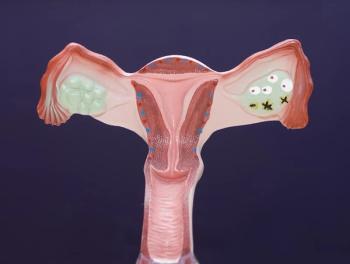
Miami Breast Cancer Conference® Abstracts Supplement
- 40th Annual Miami Breast Cancer Conference® - Abstracts
- Volume 37
- Issue suppl 4
- Pages: 9-10
3 Real-world Outcomes of Sacituzumab Govitecan in Metastatic Breast Cancer Patients: A Single Institution Experience
Background/Objectives
Metastatic triple-negative breast cancer (mTNBC) is a complex disease with limited therapeutic options and is associated with a poor prognosis. The treatment landscape for mTNBC has expanded in the last few years, but the optimal sequencing of agents after first-line therapy remains unclear. FDA approval of sacituzumab govitecan (SG) was based on the significant improvement in progression-free survival (PFS) and overall survival (OS) demonstrated in the ASCENT trial when compared with physician’s choice of chemotherapy in previously treated mTNBC patients. Real-world outcomes for SG have yet to be reported for patients with mTNBC. Primary objective of this study was to analyze outcomes of SG in real-world patients with mTNBC who were treated at our cancer center and the secondary objective was to analyze outcomes in the HER2-low subset of patients.
Materials and Methods
Retrospective review of metastatic breast cancer patients’ (pts) charts treated with SG at Roswell Park Comprehensive Cancer Center from 2021 until 2022 was conducted. Clinical and pathological variables including demographics, site of metastases, prior lines of therapy, relative dose intensity (RDI), adverse events (AEs), HER2 immunohistochemistry (IHC) score, clinical response, and last follow-up were collected. Association with clinical response and survival was evaluated using Fisher’s exact test for categorical variables and the Wilcoxon Rank Sum test for continuous variables. Univariate Cox proportional-hazards models were performed to evaluate overall survival. Kaplan-Meir plots and log-rank tests were used for survival analysis. SAS v9.4 was used to perform statistical analysis at a significance level of 0.05.
Results
24 pts enrolled, 22 triple negative and 2 hormone-receptor positive. Median age 58 years (29-84 years). 75% of pts (18/24) received ≥ 3 prior treatment lines in the metastatic setting and 46% (11/24) had ≥ 3 metastatic sites, 7/24 had brain metastasis. 95% (21/22) pts experienced any grade AEs, most commonly diarrhea and fatigue 55% (12/22), neutropenia 50% (11/22), and nausea 41% (9/22). Grade 3 AEs leading to SG interruption and/or dose reduction or discontinuation occurred in 27% (6/22), most commonly neutropenia (23%; 5/22). One pt had grade 4 multiorgan AEs. The ORR was 61% (11/18) with 16.7% (4/18) of pts with stable disease (SD). Response was not assessed in 6 pts. Median duration of response was 5.5 months (IQR, 3-9). The median RDI [relative dose intensity] was 80% (IQR, 50%-90%), 70% (IQR, 60%- 80%), and 60% (IQR,30%-70%) for pts who had a partial response (PR), SD, and progressive disease (PD), respectively. 79% (19/24) of pts had HER2-low disease and responded favorably with a clinical benefit rate (PR or SD for 6 months) of 50% (9/18).
Conclusions
Similar to the ASCENT trial our cohort included heavily pretreated patients with a median of 3 lines of prior therapy that included immunotherapy and PARP inhibitors. In contrast to the ASCENT trial, which excluded patients with brain metastases, approximately 30% (7/24) of our cohort had brain metastases and comparable clinical outcomes. In our heavily pretreated mTNBC population, SG produced comparable disease response, and tolerability, and patients received a similar RDI. Response in the HER2-low subgroup was notable given HER2-low patients were not yet recognized as a clinically relevant subgroup in the ASCENT trial and in light of what is now known about the efficacy of trastuzumab deruxtecan in patients with HER2-low metastatic breast cancer. Multi-institutional collaboration is currently ongoing to increase the sample size.
AFFILIATIONS:
Sabah Alaklabi,1 Joseph Elijah,2 Arya Mariam Roy,3 Adrienne Groman,4 Shipra Gandhi3
1Department of Oncology, King Faisal Specialist Hospital and Research Center, Riyadh, Saudi Arabia.
2Department of Clinical Pharmacy, Roswell Park Comprehensive Cancer Center, Buffalo, NY.
3Department of Medicine, Roswell Park Comprehensive Cancer Center, Buffalo, NY.
4Department of Biostatistics and Bioinformatics, Roswell Park Comprehensive Cancer Center, Buffalo, NY.
Articles in this issue
Newsletter
Stay up to date on recent advances in the multidisciplinary approach to cancer.






































